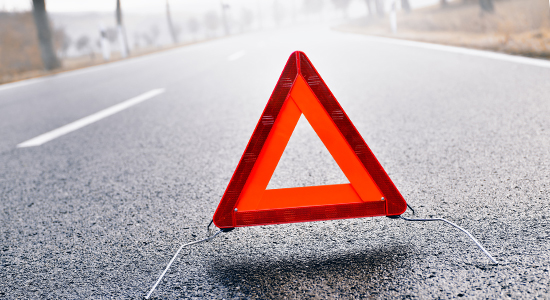
Nov. 15, 2016 – There have been many recent articles written by litigators about the driverless car. Typically, these articles address who will bear the burden of liability, the likely prospect of a surge in products liability claims, or the ability of the legal system to keep pace with the exponentially faster speed of changing technology. This article will look at this issue from a different angle. It will focus on the financial implications of the driverless car for the smaller, injury-only law firm, whether you represent the plaintiff or an insurance company.
The driverless car is predicted to bring with it much safer roads and the prevention of countless deaths that would otherwise be attributed to negligent operation of a vehicle. As such, this could very well be a watershed moment in the history of traffic safety. None of what is discussed here is in any way intended to diminish this.
The New Normal
While experts seem to be all over the map about exactly when our roads will be dominated by self-driving vehicles, every industry expert agrees on one thing – what recently appeared to be the stuff of science fiction will soon be the new normal. The only real question is when. All major auto manufacturers are now, or have long been, immersed in this race to the market. Google, Tesla, and others are now at the precipice. While it is true that many technological, societal, and regulatory hurdles must be overcome before any of us finds ourselves behind the wheel of a self-driving car, consider these recent announcements by market players:
GM predicts autonomous cars “could” be on the roads by 2020, or sooner (Wall Street Journal, May 20, 2015).
Toyota to bring first models capable of autonomous highway driving to market by 2020 (wired.com, Oct. 18, 2015).
Elon Musk expects fully autonomous Tesla by 2018, with regulatory approval to occur within one to three years thereafter. (Danish newspaper Borson, Sept. 23, 2015).
Jim Herrick is a highly respected Fond du Lac civil litigator with 47 years of experience. He has long represented both plaintiffs and insurance companies. Jim has, literally, seen it all. But, he says, what is about to occur is unprecedented:
When you add up the cumulative safety effects of seat belts, airbags, self-braking systems, and ultimately self-driving vehicles, over the next 20 years we’ll see an approximate 80 percent decline in both the frequency and severity of crash injuries.
Because of this, he also foresees a reversal of the trend of small litigation firms specializing in auto crash cases: “I see the survival of smaller litigation firms as dependent upon their ability to cultivate alternative sources of revenue. My recommendation, particularly for the younger litigators, would be to begin that process as soon as possible.”
Numbers Don't Lie
Exactly why should smaller injury firms pay attention to Jim’s advice? Because the numbers don’t lie.
According to the Centers for Disease Control and Prevention, 2012 saw 2.5 million people transported to emergency rooms following motor vehicle accidents. Two hundred thousand of these folks – 7,000 per day – were hospitalized.
Studies estimate that motor vehicle accidents cost the United States $450 billion dollars per year in the form of medical, property, legal, productivity, and quality of life costs. Google recently predicted that it believes this coming technology could reduce that number by four hundred billion dollars.
Auto insurance companies are painfully aware of all of the above. This is because many experts believe that crashes involving driverless cars will primarily involve product liability actions involving auto manufacturers. If true, logic suggests that personal auto coverage will become much less relevant. This, when combined with the billions saved in losses referenced above, would indicate that auto carriers have good reason to worry.
A Game Changer
I am 46 and do plaintiff’s injury cases only. At this age, it’s possible I could continue to retirement by exclusively taking injury cases, the vast majority of these being car crashes of one kind or another. A younger lawyer in this industry may not be able to say the same. To protect myself, I am currently working on a contingency plan which, were the technology to progress faster than currently anticipated, would allow me to make an expansion of my business model as quickly as possible.
Fellow small firm litigators: For society as a whole, this news is very good news. This technology will, ultimately, make our roads much safer for our children and grandchildren. It will also, it seems, permanently alter our roles in the litigation of auto claims/crashes. While some change is always inevitable, this one is truly a game changer.
So it is up to you, as small firm litigators, to choose how or whether to plan ahead to properly weather the storm. To paraphrase George R.R. Martin, winter is indeed coming.
This article was originally published on the State Bar of Wisconsin’s Litigation Section Blog. Visit the State Bar Sections or the Litigation Section’s web pages to learn more about the benefits of section membership.
